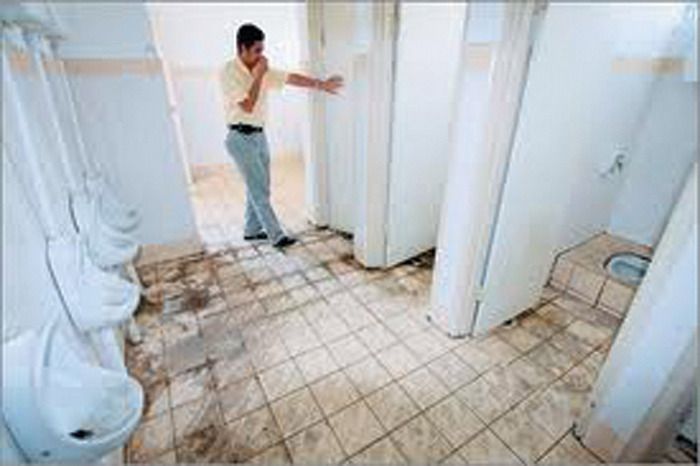Don’t Blame the Government for Everything


By Mariam Mokhtar


“The Malaysian toilets are some of the worse I have seen in the world, and believe me, I have travelled extensively. The Malaysian toilet is one place where you do not wash your hands after you have done your ablutions. You pick up more germs from the taps.”
“The taxi drivers overcharge, they are rude, their vehicles are dirty and they refuse to use their meters. If I were to complain, they threaten to stop and leave me stranded. Despite numerous complaints, from the public, there has been no improvement.”
“Why are the floors in public toilets covered in an inch of water? Why are the hoses draped into the toilet bowl? Don’t the cleaners, or their supervisors, realise this is an unhygienic practice?”
“If the traffic cop does not wear his seatbelt, overtakes on double white lines or double parks, what message does that send to other people?”
“In the west, a park is just that – a green lung for the city, where people can enjoy fresh air, sunshine and exercise, or relax with family and friends. Why are our parks a place for hawkers to peddle their food and drink? The litter left by irresponsible people, the rodents which feast on leftovers, defeats the purpose of the park.”
“In the run-up to a major festival, ministers appear at the toll booths handing out leaflets and presents to drivers, to remind us to drive safely. This is a waste of public funds. There are enough laws to cover every eventuality. The problem is a lack of enforcement. There is lot of finger pointing when a big crash occurs or a structure collapses. They could be avoided by an adherence to basic principles.”
“The factory discharge led to many dead fish. We complained because it affects our livelihood, but the illegal run-off wasn’t acted upon as a senior politician has a share in that firm.”
“I have to resort to begging because my husband left me and I have to feed my children. No. I do not know about any schemes to help people like me. Where should I go for help?”
“The factory emits thick black smoke from the stack. Its choking fumes force our grandmother to go indoors, as it worsens her asthma. The soot falls on our washing and makes it dirty. It has been going on for decades, but I put up with it.”
“The building which has stood for over a century and survived WWII and the Emergency has fallen victim to people who understand nothing about conservation. Why add tacky features, which detract from the original historical piece? You wouldn’t expect the Alhambra to have additions of modern tat. So, why has Kellie’s Castle been defiled?”
“I kept my appointment with the Pengarah, but in the lobby was told my elbow length sleeves were too short and revealed too much of my arms. How does the state government expect foreign investment and tourists to come, when they have petty, parochial, power wielding gorms sitting in front of the elevators checking people’s attire?”
“My papers were in order and I had not broken any traffic rules but when the cop stopped me, he insisted I had gone over a white line. He kept asking how I could settle things. I stood my ground, and told him that I had done nothing wrong. When I asked for his serial number and name, so that I could write to the police chief, he backed off, frightened by my persistence.”
You would have experienced at least one of these incidents, involving rubbish, litter, traffic or pollution. We have councillors whom many consider are simply warming their seats and getting what one irate Ipohite called, “Makan gaji buta saje!” (sinecure).
One expat suggested the following. First. Education of the population to dispose of waste properly. Singapore and Switzerland are relatively clean places, because of education in schools and the practise of proper waste disposal is encouraged at home. Fines may be necessary to enforce the law. Second. The people should not just blame the government and expect it to solve all their problems. The people should also be made accountable for their actions. The government could help and give them guidance.
Do you agree? Have you other suggestions to help tackle any of these problems?


